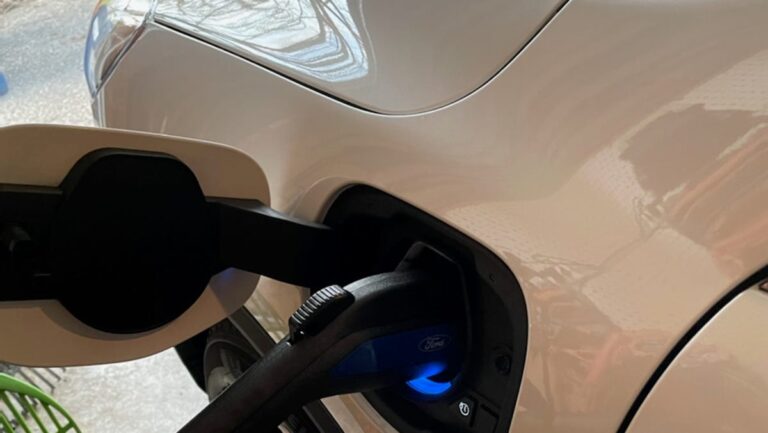Clean energy businesses in Michigan will add more than 5,400 workers in 2022, pushing the state to lead the Midwest region in the number of clean energy workers, officials said Tuesday.
There are 123,983 Michigan residents working in clean energy and clean transportation jobs, a 4.6 percent increase in 2022, according to a Clean Jobs report released Tuesday by the national nonpartisan business group Environmental Entrepreneurs (E2) and Evergreen Climate Innovations.
“Industry growth is expected to continue as federal climate investments bring new clean energy projects,” Micaela Preskill, Midwest Advocate for E2, said during a live press conference Tuesday. “And with strong government policy, growth is even more certain. That's a good thing, of course. When clean energy jobs grow, our entire economy benefits. Clean energy jobs are available to everyone and span a wide swath of the economy from manufacturing, innovation, construction, investments, etc.”
Preskill's partner at Detroit-based energy management services firm SEEL LLC was Michigan Lt. Garlin Gilchrist. Louis James, CEO and founder of SEEL, Emma Hayali. a mechanical technician for FLO EV Charging. Mike Wescott, director of business development for Harvest Solar. Scott Alan Davis, vice president of inclusion and economic development for SEEL, and Grace Michienzi of the Michigan Energy and Innovation Business Council.
The Clean Jobs report comes a year after the Inflation Reduction Act of 2022, billed as the largest climate and clean energy investment in history. The state's clean energy economy is expected to grow with investments resulting from the legislation and as the state considers adopting clean energy policies.
“I think this report is really a blockbuster and it confirms that we're on the right track and that we need to continue to do more,” Gilchrist said Tuesday. He noted the support he and Gov. Gretchen Whitmer have given the industry. Those actions include signing executive orders for economy-wide carbon neutrality goals by 2050 and setting interim emissions targets for the state at 28% reduction by 2025 and 52% by 2030.
Among clean energy jobs, energy efficiency jobs continued to lead the way in 2022 with more than 75,000 workers, according to the report. These workers in this field manufacture Energy Star rated appliances and install efficient lighting, ventilation and air conditioning systems. They also install advanced building materials in homes and commercial buildings.
Net transportation jobs were the fastest growing sector in 2022 in Michigan, growing 14.4%. 4,067 jobs were added for a total of 32,271 employees. Jobs related to electric vehicle production account for most of the industry's growth, according to the report.
The largest hubs with clean energy jobs are Detroit with 66,586 jobs, Grand Rapids with 14,590 jobs and Lansing with 4,306 jobs. The state's rural areas account for nearly 16,000 jobs.
Scott Alan Davis, vice president of inclusion and economic development for SEEL, said the root of its business operations is providing workforce development and training to develop its staff. The company saw an influx of workers when the auto industry took a hit in 2009.
“We took those people who lost their jobs, these highly skilled people, and we trained them to be green workers,” Davis said.
Davis said the time is perfect for an infusion of federal and state dollars into the clean energy industry.
“So many people are looking for work and want to do things differently,” he said. “And what we're most excited about is the opportunity for jobs, jobs and more jobs. And the impact that has not only on the people who get that job, but it's also going to change those communities as … people from those communities will begin to adopt these new technologies and participate in these programs. And so we'll see an influx of more black and brown communities connecting, more rural communities connecting. And all of that is important to this work.”
Gilchrist noted from the report that small businesses helped drive the state's energy sector in 2022 with 75.3 percent of businesses employing fewer than 20 people.
“Well, these are some of the smallest businesses in our community that have some of the biggest impacts on our economy and our environment,” he said. “… created companies because of entrepreneurs who are just ready to get their hands dirty, ready to make sure people have access to their place in this green economy. The number also showed that climate change is an opportunity. The way we can mitigate climate change through innovation, through collaboration, and through ideas. And those ideas will help us create solutions, help us create jobs, help us increase our economic vitality, bring more people in the state of Michigan, help grow our population.”
cwilliams@detroitnews.com

